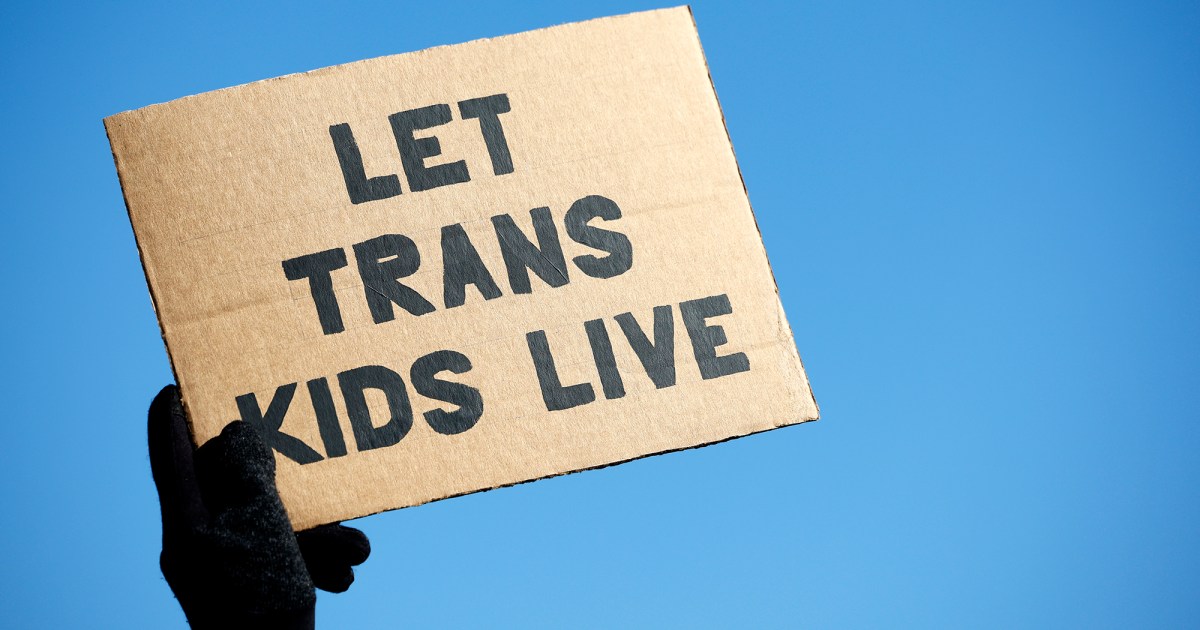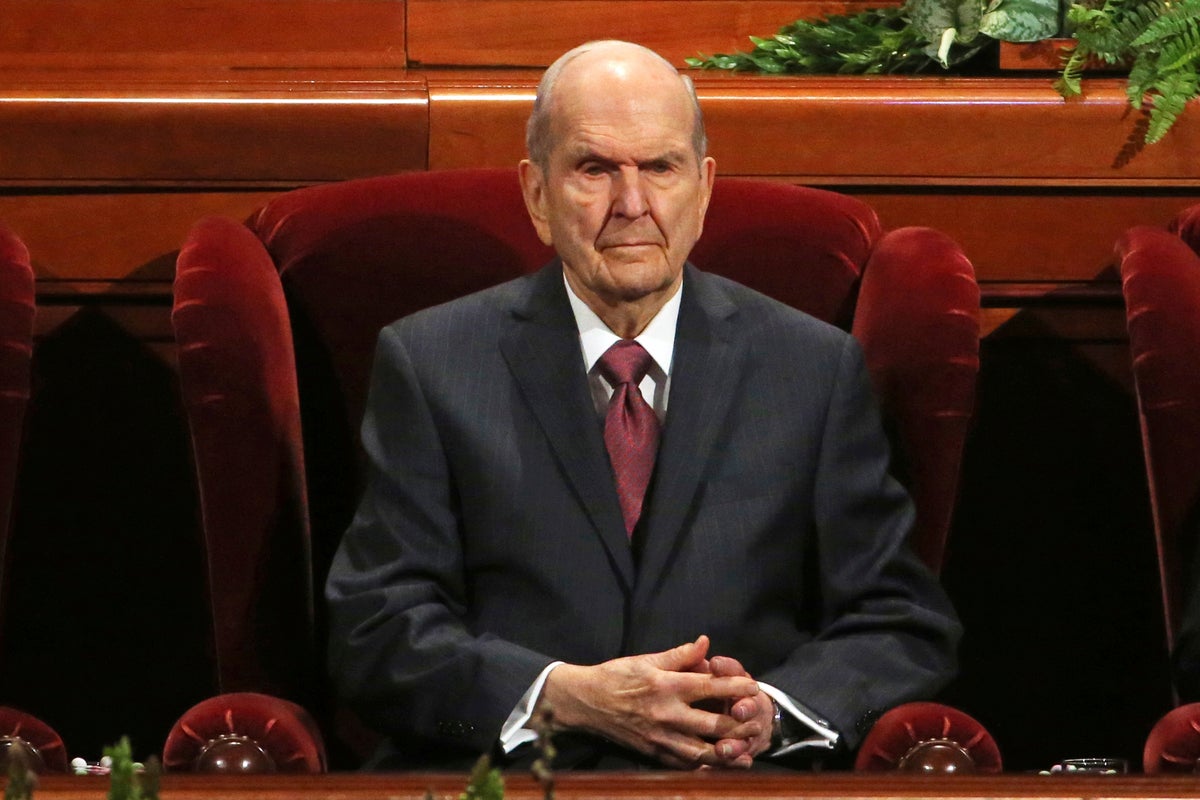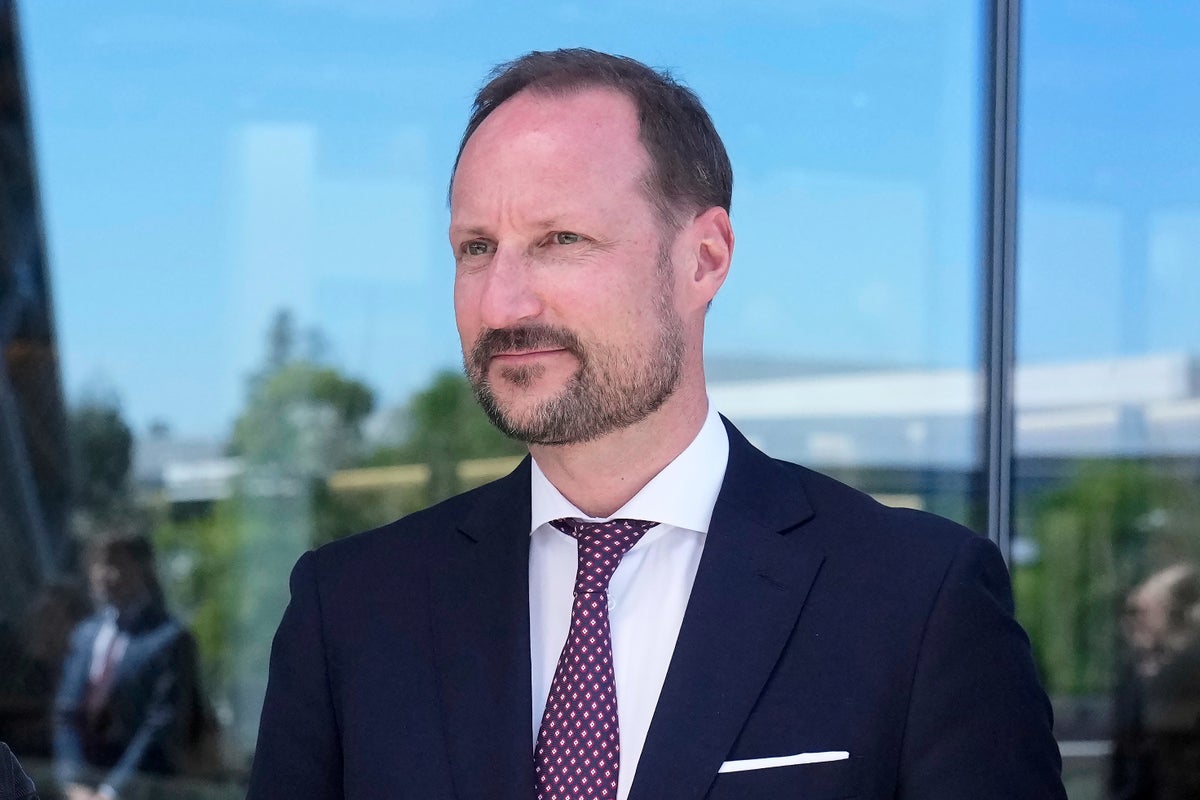Since the early 2010s, amid a sea change of public acceptance of LGBTQ people, state after state banned the use of conversion therapy—the debunked, harmful practice of trying to change a person’s sexual orientation or gender identity—on children and teenagers. And for just as long, a tiny contingent of therapists on the fringes of their profession have been fighting to overturn those laws, arguing that they have a free-speech right to try to “treat” or “cure” LGBTQ youth.
Now, those therapists—and their powerful allies in the conservative Christian legal movement—are on the verge of success.
On Tuesday, the Supreme Court hears arguments in Chiles v. Salazar, a case brought by a Christian therapist challenging a Colorado law that forbids licensed mental health professionals from attempting to change minors’ gender identity or sexual orientation. The case has the potential to overturn restrictions on conversion therapy in 23 states, greenlighting a practice shown through decades of research to put individuals at higher risk for suicidality and depression.
The science on conversion therapy is unambiguous: it’s both ineffective and dangerous.
The science on conversion therapy is unambiguous: it’s both ineffective and dangerous. All the way back in 2009, an American Psychological Association task force issued a landmark report documenting the lack of evidence behind sexual orientation “change efforts,” as scientists refer to them. Since then, APA has only strengthened its stance against both anti-gay and anti-trans conversion efforts. In October 2015, the federal Substance Abuse and Mental Health Services Administration published a report concluding that sexual orientation and gender identity change efforts were “coercive, can be harmful, and should not be part of behavioral health treatment.”
More recently, 28 major medical and psychological associations signed a joint statement condemning conversion therapy and pledging to eliminate it. “Decades of research findings and clinical expertise have revealed that variations in sexual orientation and gender identity are a normal part of human development across race, ethnicity, and socioeconomic status,” they wrote.
Before 1973, when homosexuality was still considered a psychological disorder, conversion therapy was the standard treatment. Some psychologists would administer electric shocks to patients, or give them nausea-inducing drugs, while showing them gay pornography. But once same-sex attraction was no longer pathologized, almost all therapists stopped trying to “cure” it, instead looking for ways to support their clients without changing their sexual orientation.
Still, as Mother Jones documented in an investigation last year, conversion therapy never really went away. Today, the practice usually takes the form of religious counseling or talk therapy.
When the harms of conversion therapy came to light, prominent “ex-gay” leaders disavowed their work, dissolved their organizations, and apologized.
“It is psychologically manipulative,” Simon Kent Fung, a conversion therapy survivor and advocate, said in 2023—instilling and deepening feelings of shame, isolation, and worthlessness.
In a prior interview with Mother Jones, conversion therapy survivor Myles Markham described the aftermath of conversion therapy as “a place of constant, albeit quiet, torment.”
“A lot of thoughts [were] placed into my head about how disturbing and gross and creepy people like me were,” a transgender survivor of conversion therapy, Lillian Lennon, said in the same series of interviews. “I internalized a lot of these projections.”
When the harms of conversion therapy came to light a decade ago, and a campaign to ban its use on children swept the nation, prominent leaders in the “ex-gay” movement disavowed their work, dissolved their organizations, and apologized. Today, those leaders are siding with Colorado at the Supreme Court.
“They cannot take back the harm they caused, but they recognize their unique obligation and opportunity to prevent future damage,” their lawyer wrote in a filing in August.
The case now before the Court was filed by Colorado Christian counselor Kaley Chiles. Her lawyers are affiliated with the Alliance Defending Freedom (ADF), a far-right legal powerhouse deeply involved in efforts to overturn Roe v. Wade and in a constant stream of legal attacks on trans rights.
ADF argues that because Chiles’ form of therapy consists only of talking with clients, Colorado’s Minor Conversion Therapy Law violates her constitutional right to free speech. Colorado, on the other hand, asserts that Chiles’ words during her therapy sessions constitute “professional conduct” subject to regulation.
Many of the arguments in the case dive deep into science, gender, and medicine. ADF and Chiles claim that “no reliable science” finds conversion therapy harmful or ineffective, citing several scholars who study how sexual orientation can shift over the course of a person’s lifetime. Yet two of those scholars, and the family of a deceased researcher, told the Guardian this week that ADF had “profoundly” misinterpreted and “distorted” their research, conflating naturally occurring sexual fluidity with forced repression.
If the justices rule for Chiles, conversion therapy bans across the country are also likely to fall.
“It’s erasing the fact that conversion therapy is motivated by shame, fear of disconnection, fear of expulsion, fear of the loss of God’s love, fear of abandonment,” Lisa Diamond, distinguished professor of psychology and gender studies at the University of Utah, told the Guardian. “Those are triggers of suicidality. That’s where the damage comes in.”
Chiles says she wants to use talk-based therapy to help minor clients “choose to align their sense of [gender] identity with their sex” and “to reduce or eliminate unwanted sexual attractions”—when the minors request it. She also claims the law prevents her from supporting clients who are detransitioning or speaking freely with them about their gender and sexuality. “Exploration is off-limits if the goal is change,” her lawyers write, “unless that change is a gender transition.”
Lawyers for the state of Colorado argue that the law forbids therapists from trying to force children to adopt a different sexual orientation or gender identity—cisgender or transgender, gay or straight. “What the therapist cannot do is try to achieve a predetermined gender identity for the minor,” they argue, “regardless of whether that is or isn’t a transgender identity.”
“[The laws] were developed in close conjunction with mental health professionals to make sure that they’re crafted very narrowly,” says Shannon Minter, legal director at the National Center for LGBTQ Rights, who has worked for years on efforts to ban the use of conversion therapy on minors. The practices prohibited are when a therapist is “trying to seek a predetermined outcome” around youth’s gender or sexuality. The law does “not restrict in any way, shape or form, any form of legitimate therapy,” Minter argues.
Fung, the survivor and advocate, says the fight to protect Colorado kids from conversion therapy has brought together unlikely allies. Catholic school educators, conservative therapists, and LGBTQ advocates are working hand-in-hand in the effort—like Christian therapist Julia Sadusky, who uses non-conversion therapy to help devout youth and co-authored a brief in support of Colorado. The law “hasn’t at all hindered me from being effective in my work with teens and with their families,” Sandusky said in an interview.
Now out as a gay man, Fung is still religious and wants young people to know there is a path through the pain of being told their religion conflicts with their sense of self. He says the side supporting Chiles uses “spiritual blackmail” to spread misinformation and fear.
But legal observers like Slate’s Marc Joseph Stern say it’s extremely likely the Supreme Court will side with ADF. After all, the court’s conservative majority has done the same in two previous cases in which ADF represented clients claiming that a Colorado law intended to protect the LGBTQ community infringed on their First Amendment rights as Christians. If the justices rule for Chiles, the remaining conversion therapy bans across the country are also likely to fall.
One party rooting for Chiles to succeed: the Trump administration. Last month, the court granted a motion from the Solicitor General to participate in Tuesday’s oral arguments.
It’s no surprise the administration is siding with conversion therapy proponents. When President Donald Trump took office and promptly purged mentions of “gender” from government documents, the Department of Health and Human Services took down the SAMHSA report that determined conversion therapy was “coercive” and “harmful.” A few months later, HHS issued a new report calling for doctors to withhold gender-affirming treatments from transgender young people. Instead, it endorsed “exploratory psychotherapy”—a euphemism embraced by conversion therapists for the work they do with trans children.














